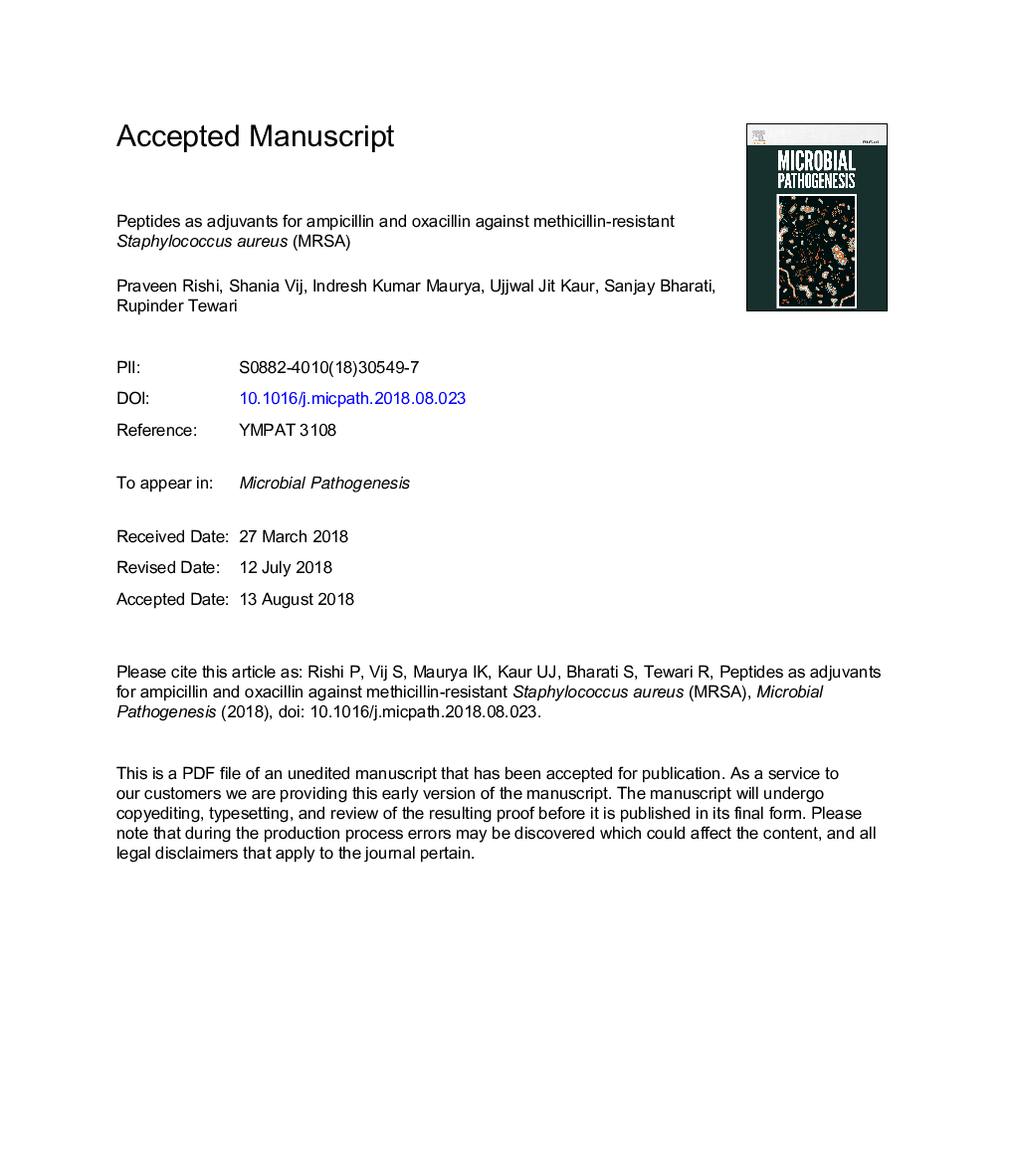| کد مقاله | کد نشریه | سال انتشار | مقاله انگلیسی | نسخه تمام متن |
|---|---|---|---|---|
| 8944996 | 1645266 | 2018 | 29 صفحه PDF | دانلود رایگان |
عنوان انگلیسی مقاله ISI
Peptides as adjuvants for ampicillin and oxacillin against methicillin-resistant Staphylococcus aureus (MRSA)
دانلود مقاله + سفارش ترجمه
دانلود مقاله ISI انگلیسی
رایگان برای ایرانیان
کلمات کلیدی
موضوعات مرتبط
علوم زیستی و بیوفناوری
ایمنی شناسی و میکروب شناسی
میکروب شناسی
پیش نمایش صفحه اول مقاله

چکیده انگلیسی
Fast emerging antibiotic resistance in pathogens requires special attention for strengthening the reservoir of antimicrobial compounds. In view of this, several peptides with known antimicrobial activities have been reported to enhance the efficacy of antibiotics against multidrug resistant (MDR) pathogens. In the present study, potential of peptides having distinct mechanism of action, if any, was evaluated to improve the efficacy of conventional antibiotics against methicillin-resistant S. aureus (MRSA). After primary screening of six peptides, two peptides namely T3 and T4 showing very high minimum inhibitory concentrations (MICs) were selected to assess their role in altering the MICs of antibiotics to which the pathogen was resistant. In the presence of the peptides, the MICs of the antibiotics were found to be reduced as per the fractional inhibitory concentration indices (FICI) and time kill assay. These observations prompted us to look for their mechanism of action. The effect of peptides on the morphology of pathogen by field emission scanning electron microscopy (FE-SEM) revealed no damage to the cells at the sub-inhibitory concentrations of the peptide which correlated well with the higher MIC of the peptide, indicating no direct impact on the pathogen. However, dielectric spectroscopy, confocal microscopy and flow cytometry confirmed the interaction and localization of peptides with the bacterial membrane. The peptides were also found to inhibit efflux of ethidium bromide which is the substrate for many proteins involved in efflux system. Therefore, it is speculated that the peptides after interacting with the membrane of the pathogen might have resulted in the inhibition of the efflux of antibiotics thereby reducing their effective concentrations. The study thus suggests that peptides with no antimicrobial activity of their own, can also enhance the efficacy of the antibiotics by interacting with the pathogen thereby, acting as adjuvants for the antibiotics.
ناشر
Database: Elsevier - ScienceDirect (ساینس دایرکت)
Journal: Microbial Pathogenesis - Volume 124, November 2018, Pages 11-20
Journal: Microbial Pathogenesis - Volume 124, November 2018, Pages 11-20
نویسندگان
Praveen Rishi, Shania Vij, Indresh Kumar Maurya, Ujjwal Jit Kaur, Sanjay Bharati, Rupinder Tewari,